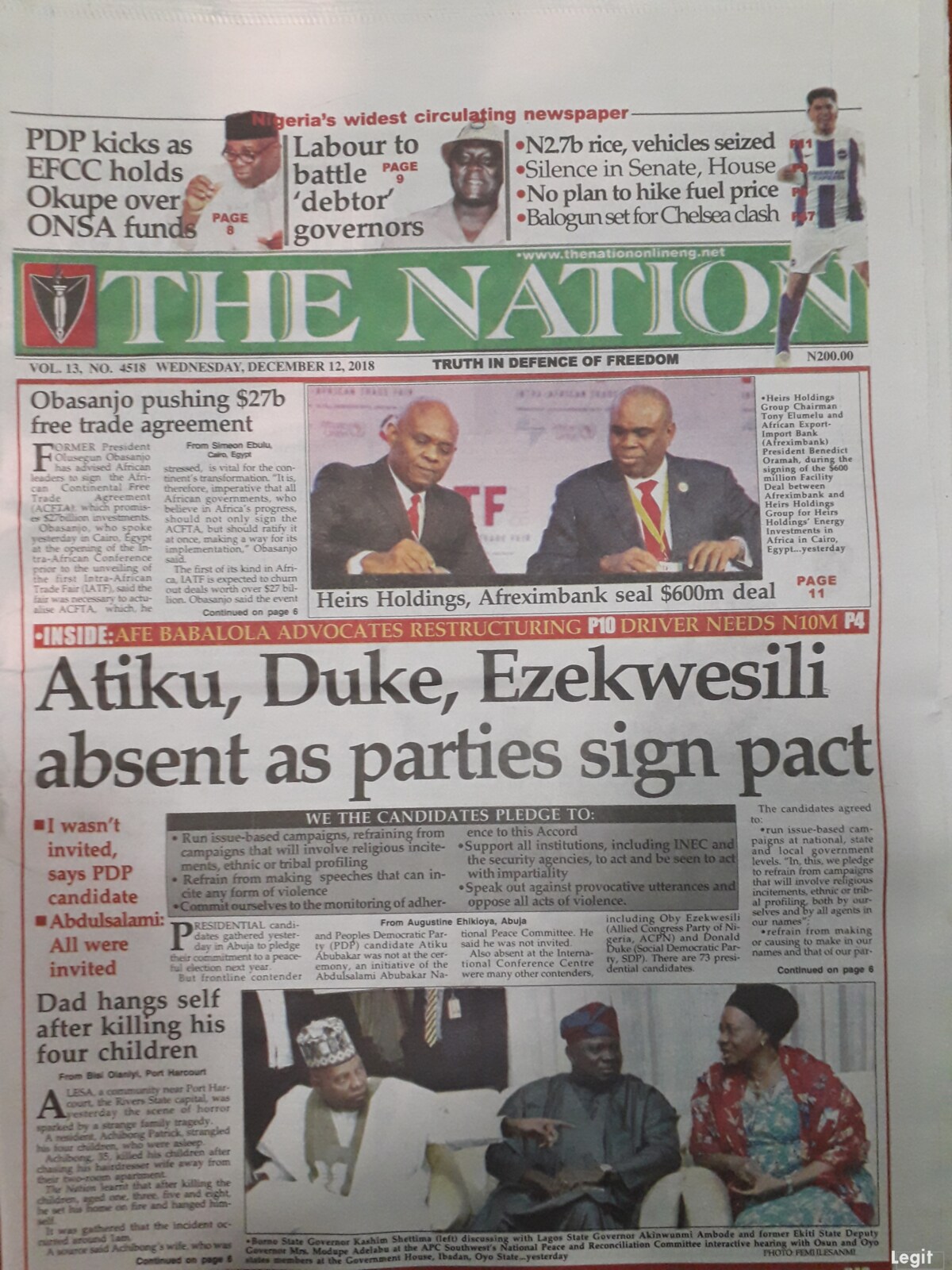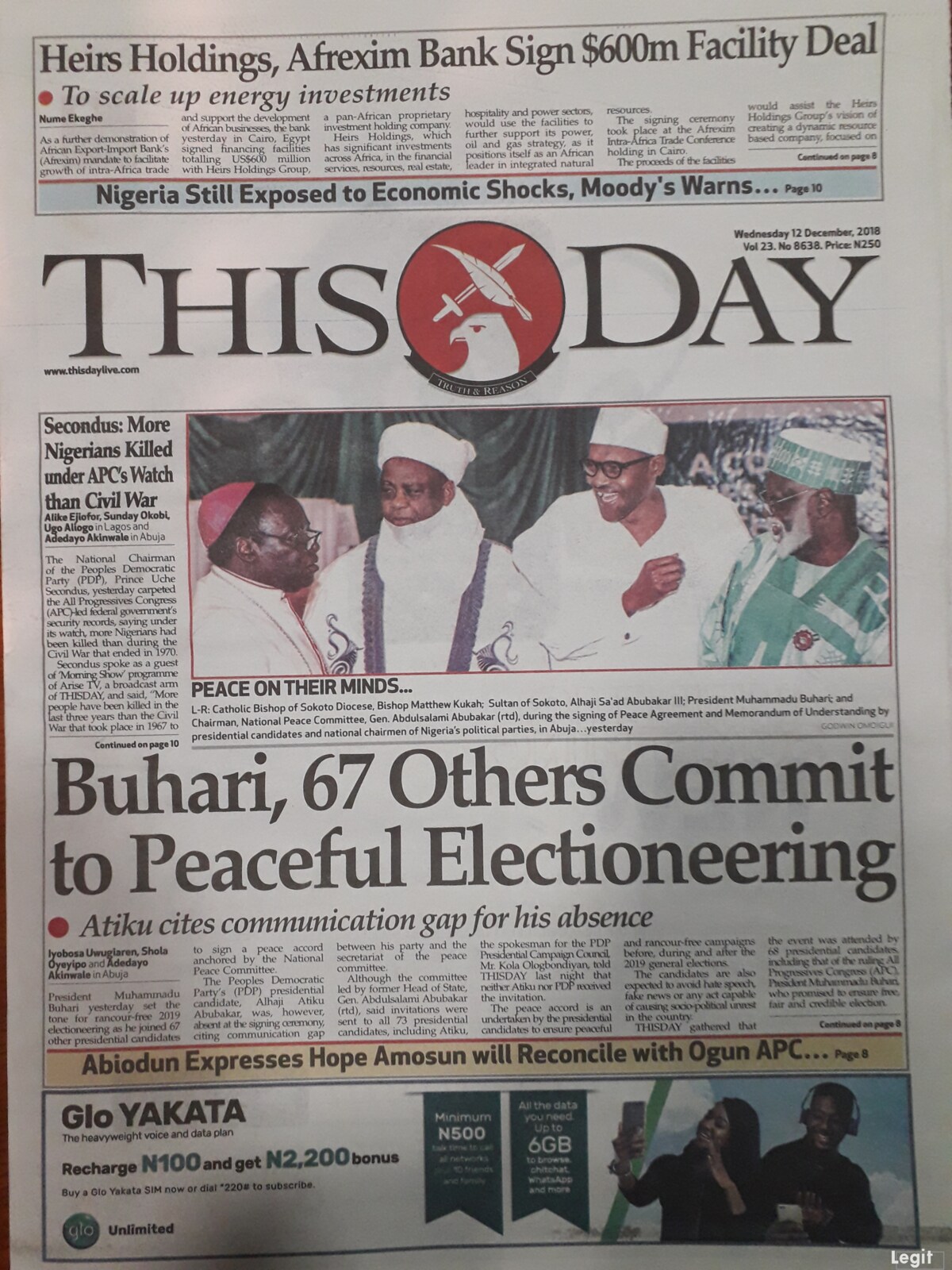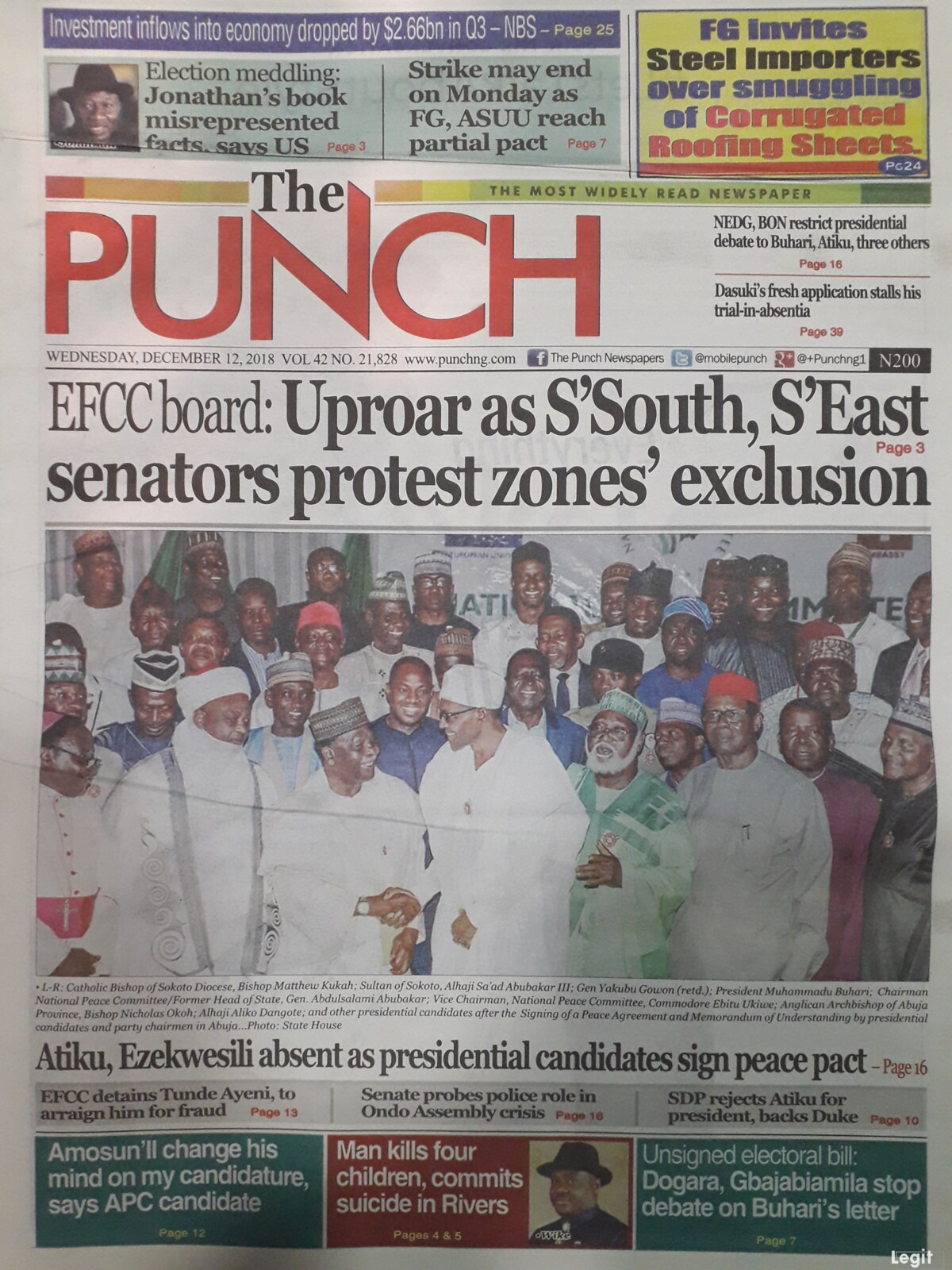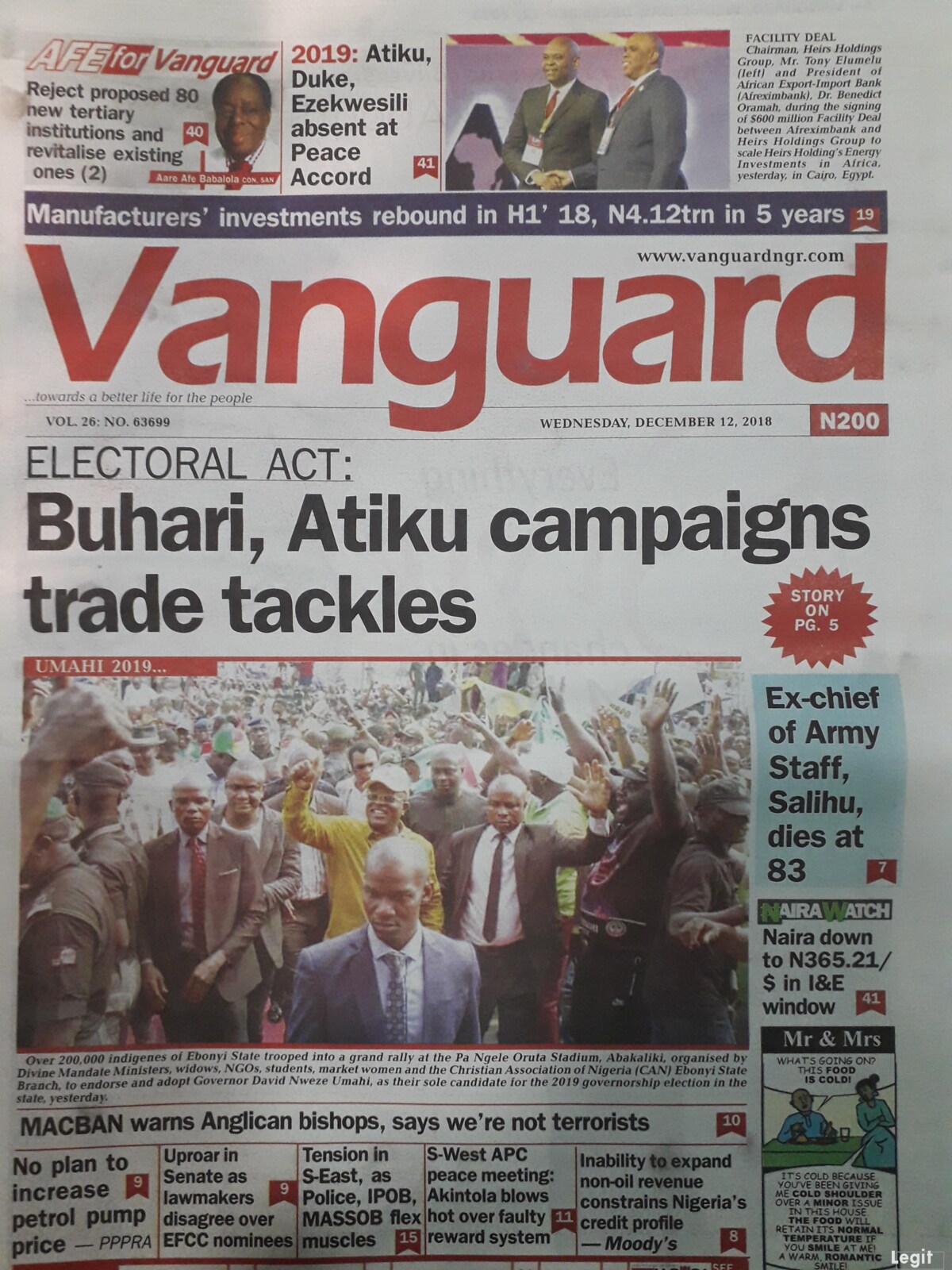The newspaper review for Wednesday, December 12, leads with the peace accord signed by President Muhammadu Buhari, other presidential candidates and the absence of Atiku Abubakar, Ezekwesili, Duke among other stories.
The Nation reports that Labour Congress (NLC) President Comrade Ayuba Wabba yesterday warned state governors owing salaries of their workers and pensioners that international disgrace and embarrassment await them in the countries they visit henceforth.
Wabba, who is the newly elected president of International Trade Union Confederation, the global trade union body, said workers across the globe would be mobilised to embarrass any governor who travel to other countries without first paying salaries of workers and their pensioners.
READ ALSO: Fresh attack in Zamfara village as 22 people are confirmed dead

The Nation newspaper review of Wednesday, December 12. Credit: Legit.ng snapshot.
This Day reports that President Muhammadu Buhari yesterday set the tone for rancour-free 2019 electioneering as he joined 67 other presidential candidates to sign a peace accord anchored by the National Peace Committee.
The Peoples Democratic Party’s (PDP) presidential candidate, Alhaji Atiku Abubakar, was, however, absent at the signing ceremony, citing communication gap between his party and the secretariat of the peace committee.

This Day newspaper review of Wednesday, December 12. Credit: Legit.ng snapshot.
PAY ATTENTION: Download our mobile app to enjoy the latest news updates
Punch reports that there was a rowdy session in the Senate on Tuesday over the four members of the Economic and Financial Crimes Commission nominated by President Muhammadu Buhari.
The senators were divided as the lawmakers from the south-east and the south-south protested the exclusion of the two geopolitical zones by the President in his nominations.
But the senators from the North, particularly the All Progressives Congress members, argued that the Senate should proceed with the confirmation of the nominees.

The Punch newspaper review of Wednesday, December 12. Credit: Legit.ng snapshot.
Vanguard reports that President Muhammadu Buhari and his main rival, Abubakar Atiku, Peoples Democratic Party, PDP, presidential candidate, were yesterday locked in verbal war over the Electoral Act Amendment Bill.
While the President got the support of Buhari Media Organisation, BMO, in his decision to withhold assent to the Bill, which the President claimed was in the interest of the country, the claim was immediately ridiculed by the Atiku Abubakar Campaign Organisation which said the President’s decision has evaporated every trace of his integrity.

Vanguard newspaper review of Wednesday, December 12. Credit: Legit.ng snapshot.
NAIJ.com (naija.ng) -> Legit.ng We have updated to serve you better
Minimum Wage: Is N30,000 Too Much for FG to Pay Workers? - Nigeria Street Gist | Legit TV.
Source: Legit.ng
from Nigeria News today & Breaking Naija news ▷ Read on LEGIT.NG 24/7 https://ift.tt/2QM9UHT
via EDUPEDIA24/7
Comments
Post a Comment